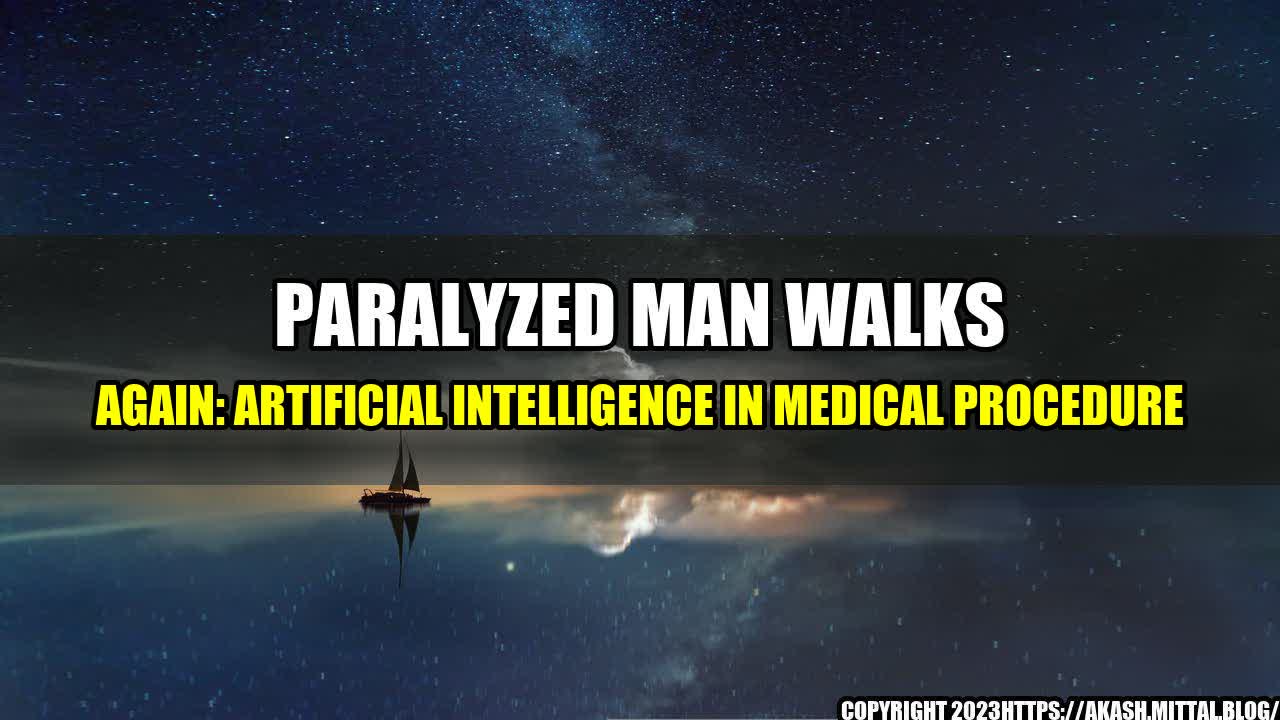
Kevin Brazile had been paralyzed from the waist down for 22 years. He never thought walking again would be possible until he became a participant in a groundbreaking experimental treatment that used Artificial Intelligence to stimulate nerve cells in his spinal cord.
Brazile was one of four people who received the implant as part of the clinical trial at the Mayo Clinic, in Rochester, Minnesota. Through a series of exercises and months of physical therapy, he regained enough control over his muscles and nerves to walk on his own.
"It was the most amazing thing that ever happened to me," Brazile said in a video released by the Mayo Clinic. "The implant changed my life completely."
The implant, which is about the size of a dime, is placed on the spinal cord, under the skin. It contains an array of electrodes that send electrical impulses directly to the nerve cells. The impulses mimic the signals that the brain sends to the muscles, allowing the patient to move their legs voluntarily.
The implant is controlled by an Artificial Intelligence system that adjusts the signals based on the patient's movement and muscle activity. It can also learn and adapt to the patient's individual needs, optimizing the stimulation to achieve the best results.
The implant technology is not new, but the use of Artificial Intelligence to control it is a breakthrough. The system can interpret the signals from the patient's muscles and adjust the stimulation accordingly. This means that the patient can control their movements and improve their capabilities over time.
The use of Artificial Intelligence in medicine is rapidly advancing, and it has the potential to revolutionize healthcare. AI can help doctors diagnose diseases, plan surgeries, and develop personalized treatments. It can also assist with medical research, by analyzing large amounts of data and identifying patterns that humans cannot see.
AI can also help patients with disabilities and chronic conditions. Devices like the spinal cord implant can improve quality of life and help them regain lost functions. AI-powered prosthetics can also mimic the movement of missing limbs, allowing patients to perform everyday tasks like walking, running, and grasping objects.
The benefits of AI in medicine are not just limited to patients. Doctors can also benefit from AI by getting real-time information about a patient's condition, predicting outcomes, and providing personalized treatment recommendations.
The use of Artificial Intelligence in medicine is not just a buzzword. It is a real and tangible technology that is changing people's lives. From paralyzed patients to doctors, the impact of AI is far-reaching and transformative.
In summary, here are three key takeaways from this article:
Healthcare Technology
Curated by Team Akash.Mittal.Blog
Share on Twitter Share on LinkedIn